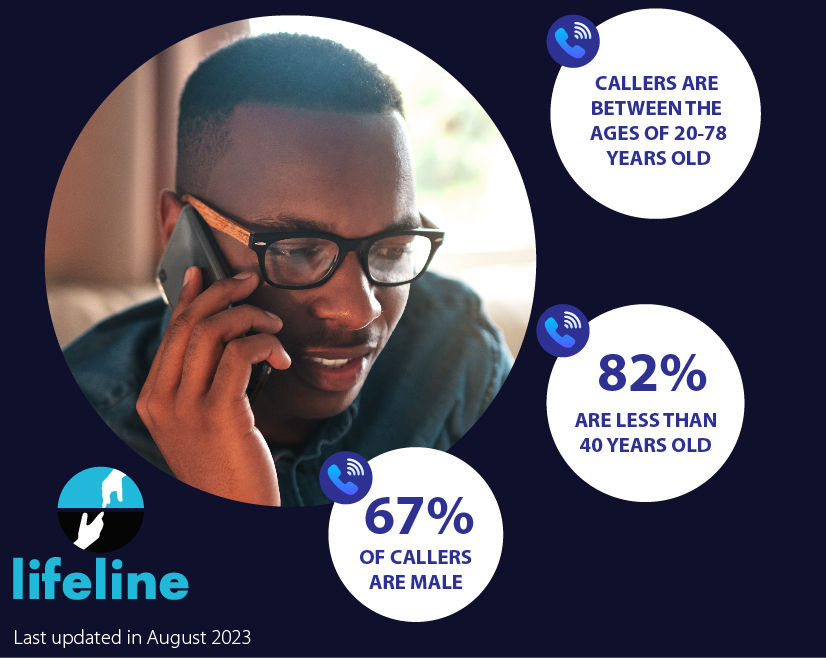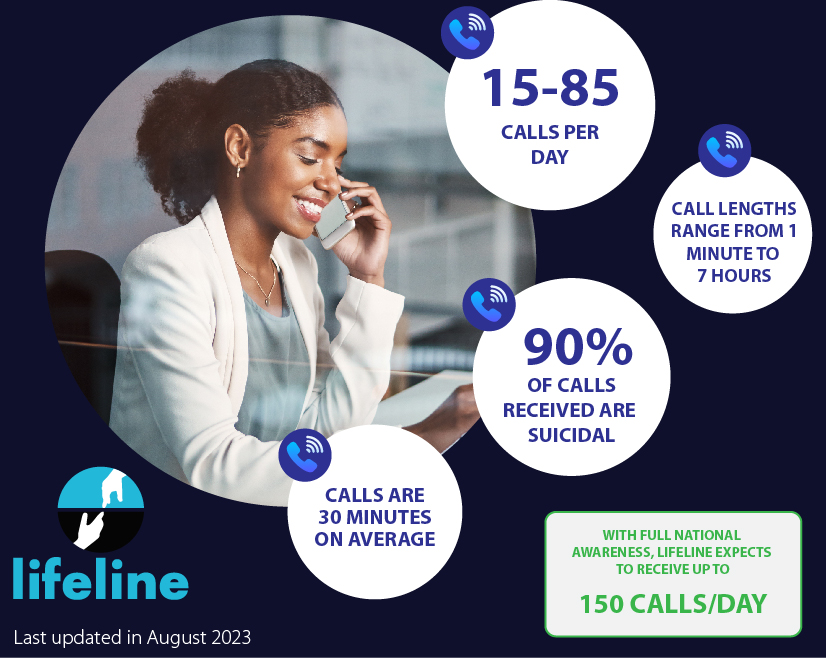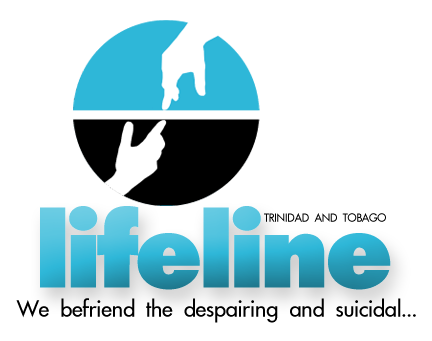
The data tells a story about men and the age range of those at risk. However, it should be noted that women are also at risk as studies do show that women attempt taking their life more often than men.
To reduce the burden of suicide and despair, Lifeline has to engage different groups of people in ways that will reach the most vulnerable. With your support, together we can reduce the number of deaths by suicide and address our mental health challenges.

The data speaks to the variability in tackling despair in our Callers. Our dedicated Listeners stay on as long as is needed offering emotional support. Our Listeners, as per our policies, can also provide further support through follow-up calls, facilitating emergency services and referrals all with the consent of the Caller.
Lifeline is building capacity towards facilitating 150 callers a day. Additionally, with your support, we can introduce new programs, incorporate more digital services and help you make a difference in our fight against despair in society!
Lifeline was registered as a non-profit operating in Trinidad and Tobago in June 1980.
Send us your queries at [email protected]
